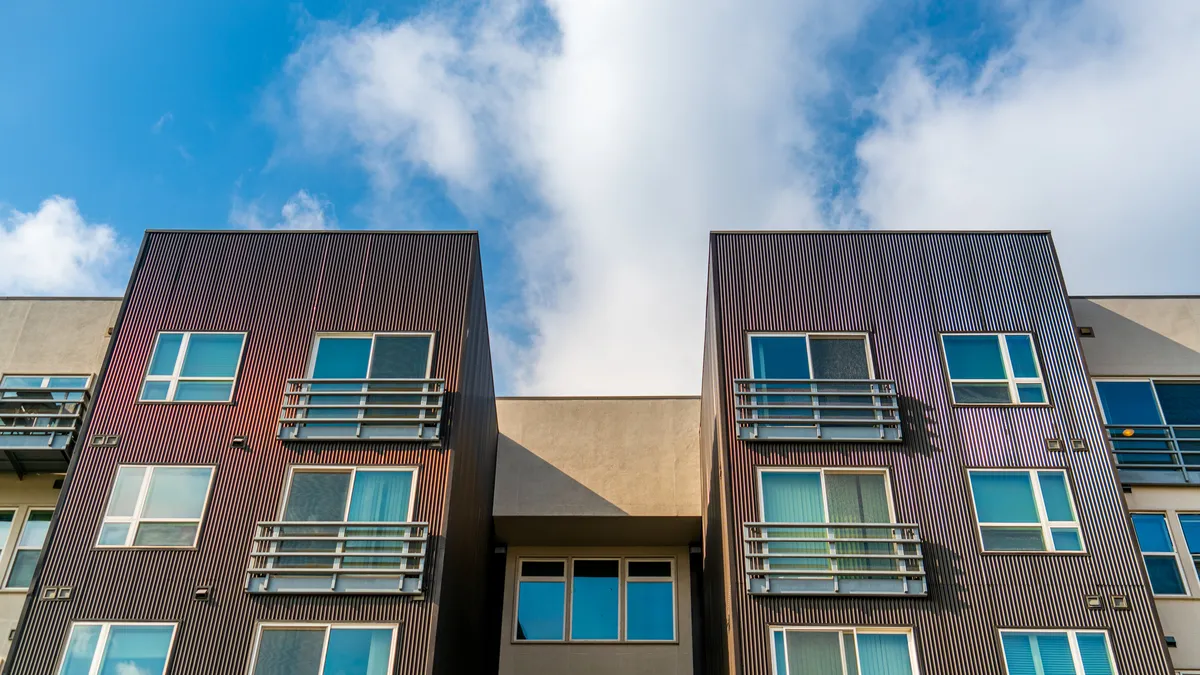On the recent round of Q4 2022 earnings calls, apartment executives expressed uncertainty about the year ahead. Chicago-based REIT Equity Residential President and CEO Mark Parrell joined that chorus on his company’s call last week.
“We do admit to finding 2023 harder to predict than usual,” Parrell said.
Despite that uncertainty, Parrell still sees a solid year for EQR, even if it's below last year’s record revenue growth rate of 10.6%. The REIT projects same-store revenue growth of 5.25% — well above its long-term average.
Powering those expectations is EQR’s confidence in the “employability and earnings power” of its customers in markets like New York City; Boston; Washington, D.C.; Seattle and San Francisco. So far, it has only a “handful of residents” who have terminated their leases because of job losses, according to Parrell. Additionally, he pointed to data from the Federal Reserve Bank of Atlanta showing that wage increases for college graduates accelerated in Q4 2022.
“There still appears to be plentiful employment opportunities for the highly skilled workers that formed the bulk of our residents as evidenced by last week’s blowout January employment and job openings reports,” Parrell said.
Despite EQR’s confidence in its resident base, the company does face obstacles in 2023. But its technology and centralization initiatives should help it corral costs to maintain balance sheet health, it said.
2023 headwinds
The cloudy economic picture prompted EQR to assume a lower rate of rental rate growth than usual and a decline in occupancy in its 2023 guidance. Continuing eviction moratoriums and backlogs in the courts will also present challenges.
EQR CFO Bob Garechana said that it is more likely that delinquency will return to pre-pandemic levels in 2024 than it is in 2023.
“Unfortunately, recent delays in lifting eviction moratoriums and slow processing within the courts led us to this more cautious forecast that reflects a more modest improvement coming later in the year than we had initially hoped for,” Garechana said on the earnings call.
Mounting supply is also an issue in a couple of EQR’s markets, including Dallas-Ft. Worth; Atlanta; Denver; and Austin, Texas. However, this supply should also benefit EQR.
Like Arlington, Virginia–based REIT AvalonBay Communities, EQR intends to shift capital from coastal hubs like California, New York and Washington, D.C., into expansion markets. New deliveries should help the company accomplish this growth into Denver, Dallas-Fort Worth, Austin and Atlanta, Parrell said.
“As we head into 2023, the transaction markets remain unsettled, but we see higher-than-usual supply in the Sun Belt and Denver markets in which we wish to expand as hopefully creating buying opportunities for us later in the year,” Parrell said.
Ninety-five percent of EQR’s properties are in coastal metros, where new deliveries are anticipated to be below pre-pandemic levels, with the exception of Washington, D.C., and Orange County, California. New York and Boston should be two of EQR’s top-performing metros in 2023 after delivering strong results in 2022, according to Michael Manelis, chief operating officer at the REIT.
Centralization push
Although rent growth should slow in 2023, Manelis said EQR will continue to focus on generating income from things like Wi-Fi, parking and amenity rate optimization. “We will also leverage data and analytics to create opportunities to expand our operating margin,” he said.
EQR, like many REITs, has taken steps to limit expenses by investing in technology. In 2023, it will complete the centralization of onsite activities, such as application processing and move-out and collection processes, Manelis said.
Still, EQR is looking to squeeze more efficiencies out of onsite operations. “On the service side, we will continue to leverage our mobile platform to create more opportunities to share our resources across multiple properties,” Manelis said.
BY THE NUMBERS
| Category | Q4 | YOY Change |
| Property revenues | $643.7 million | 9.5% |
| Net operating income | $443.4 million | 11.5% |
| Operating expenses | $200.4 million | 5.3% |
| Funds from operations | $0.97 | 27.6% |
| Rent per unit | $2,966 | 10.3% |
| Occupancy rate | 95.9% | 0.7% |
SOURCE: EQR
These initiatives seem to be paying off. In 2022, EQR’s same-store payroll expense growth was negative for the second year in a row. When combining payroll with repairs and maintenance, increases were below 3% for the second year in a row, according to Garechana.
In 2023, EQR projects same-store expense increases of 4.5%. Although that is 100 basis points more than 2022, it is below its inflation and revenue guidance, which will provide an operating margin expansion, according to Garechana. He expects repairs and maintenance and utilities to grow at a slower pace than 2022, while real estate taxes and payroll should increase faster.
“For real estate taxes, we expect municipalities will recognize the great strong income performance for multifamily in 2022 and, as a result, take a more aggressive approach to assess values and rates,” Garechana said.
Click here to sign up to receive multifamily and apartment news like this article in your inbox every weekday.







































